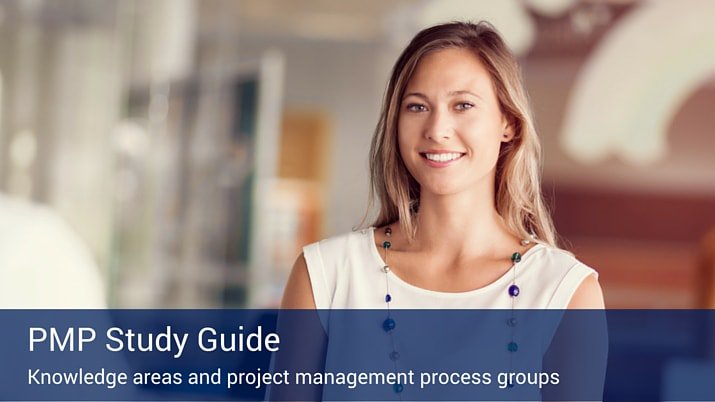The PMP® Exam Study Guide

Last Updated September 18, 2023
The PMP® credential is one of the most important certifications for project managers. Those who are certified can work in almost any industry, across a variety of business philosophies and methodologies. Its value to project managers is extraordinary, but because of its significance, obtaining the certification can be difficult.
To earn certification as a Project Management Professional (PMP)®, certificate seekers must pass an exam that contains 200 multiple choice questions designed to test their knowledge of PMI’s project management framework and evaluate their experience as seasoned project managers. The length of the exam, combined with the subject matter, typically requires candidates to devote a lot of time toward preparation and study.
Using study strategies like the Pomodoro Technique, Distributed Practice and Retrieval Practice can help ease the pressure on test takers, but those methods discuss only how to study, rather than what to study.
Testers should focus their study efforts on a few key areas. They should discard information that might prove frivolous or distracting so they can zero in on content that is relevant and beneficial. They should also create study guides, a practice that has proven effective for many kinds of people and many kinds of exams. The PMP® is no different.
A Guide to the Project Management Body of Knowledge (PMBOK® Guide) lists 10 knowledge areas that reflect the evolving project management profession. Each of these areas make up a large component of the PMP® framework, and all 10 should be incorporated into a PMP® study guide.
The 10 PMBOK® Guide Knowledge Areas
- Integration Management – It’s all about flexibility. As scope changes through the life of a project, integration management means solving problems and creating solutions to meet the expectations of the project stakeholders.
- Scope Management – Every project has established deadlines and budgets, and scope creep almost always threatens both. Setting an accurate scope up front is just as important as managing it through the project’s lifespan.
- Time Management – This is all about timelines, milestones and schedules. A well-structured and well-rounded plan is essential to managing time throughout a project.
- Cost Management – Earned Value Management is a technique central to managing costs. It depends on how well a project manager estimates, budgets, funds and controls costs to stay within a project budget.
- Quality Management – A project might be on time and on budget, but it’s no good if it fails to meet the originally-specified needs and expectations.
- Human Resource Management – Assembling the right team for the right project is one of the most important considerations a project manager can make. All team members must be suited to work within a project framework and satisfy its demands.
- Communications Management – It’s about delivering the right information to the right person at the right time. It includes the planning, creation, distribution, retrieval, management and monitoring of what is communicated between team members and stakeholders.
- Risk Management – By managing risk, a project manager can maximize opportunities. It’s about identifying, planning for, analyzing, responding to and controlling anything that might sabotage the project.
- Procurement Management – Oftentimes throughout a project, a need arises for new or different materials, services or results. Managing and incorporating these changes requires care and finesse.
- Stakeholder Management – This entails the identification of groups, people and organizations involved and affected by the project, communicating with them and measuring the impact their expectations might have on progress.
By themselves, these 10 areas can help provide a tremendous amount of study material. But alone, they don’t necessarily round out an effective study guide. The PMBOK® Guide also details process groups, a methodological set of core processes and abilities that project managers can fall back on when transitioning projects or starting new. These process groups outline the knowledge and skills that allow project managers to build successful careers. A PMP® study guide isn’t complete without them.
Project Management Process Groups
- Initiating Process Group – This details all the processes, activities and skills required to define the start of a project. It covers setting permits, gaining authorizations, processing initial work orders, assembling teams, creating budgets and anything else required to begin a project.
- Planning Process Group – Plans and processes need to be set in order to maximize workflow. Scope needs to be defined. Goals and expectations need to align with the project infrastructure in order to meet timeline and budgetary requirements.
- Executing Process Group – Teams have to be managed effectively throughout a project, and that often requires a high degree of organization and communication skills. Concerns must be addressed and problems must be solved.
- Monitoring and Control Process Group – Experienced project managers keep momentum moving forward and stave off workflow stagnation by monitoring progress and responsively addressing challenges. That can include processing change orders, handling budget considerations and keeping the team focused on meeting project expectations.
- Closing Process Group – Following through on all processes and submitting paperwork on time can help bring good closure to a project. This process group addresses the project management skills required toward the end of a project’s timeline.
Like the 10 PMBOK® Guide knowledge areas, these process groups are essential to studying for the PMP® exam. By focusing efforts on both the knowledge areas and the process groups, project managers can maximize their efficiency and minimize their burnout when preparing for the PMP® examination.





